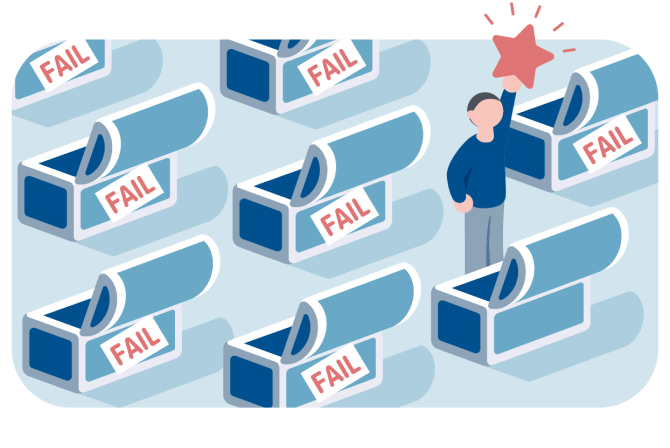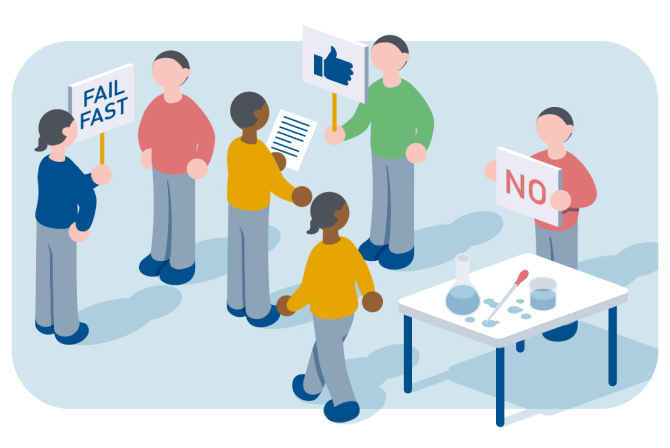The 7 pillars of our company cultureThe Elephantech Way

Our mission and culture
The development of human civilization has placed us on the verge of devouring all of our planet’s resources. Reducing our environmental impact is no longer a question of “charitable activities” but a matter of the most pressing nature. Unless we act now, a future in which humans can no longer produce goods or even survive may only be a few generations away, regardless of the technologies we may possess.
Against this backdrop and with a mission of “making the world sustainable with new manufacturing technologies,” Elephantech will continue to work towards a better world by developing new technologies that vastly reduce the environmental impact and labor intensity of the manufacturing industry.
Of course, it is no easy task to develop revolutionary and disruptive technological innovations that displace existing technologies on a global scale. We must overcome many failures and strengthen not only our technology but also our organization itself. We believe that culture plays an important role in this process.
Why is culture important?
We strive for Culture-based Management. Ideally, we do not want to bind people by rules but rather have all members share a common culture, a culture that encourages members to make decisions and act based on their own beliefs and judgment. We believe that the role of Elephantech managers is not to micromanage tasks but to instill a culture and nurture each team member to make the right decisions.
After all, what matters most are the results, and culture is all about maximizing those results. For us, establishing and keeping to our corporate culture is not a matter of social justice or ideals but something more substantial, something that should be prioritized as a core part of our business and not a peripheral add-on.
The manufacturing industry in particular is an environment in which the collapse of corporate culture can easily lead to disastrous results such as organizational fragmentation and rigidity, or even the concealment of defects.
Therefore, we believe that it is essential to create a single corporate culture to build a strong organization and, in turn, have the most significant impact on the world. We have defined our culture as “The Elephantech Way.”
1Fail fast

- Do not aim for zero failures. Build a team that moves forward while failing.
- Do not look away from risks, take thoughtful risks. Do not be afraid to verbalize risk.
- Admit your failures. Admit your weaknesses. Do not try to make yourself look big.
- Praise your peers for their failures. Do not blame others for their decisions and failures.
- Learn from failures. Instead of dwelling on failures, understand and learn from what went wrong.
2Speak up

- Do not be afraid to express opinions that differ from your peers.
- Welcome opinions that differ from your own. Create an environment where it is easy to express different ideas.
- Express your opinions to everyone you meet – especially if you feel uncomfortable doing so.
3Be transparent

- Disclose all information whenever possible. Proactively disclose information to prevent information gaps.
- Share not only the results but also the process. Do not make decisions without sharing the process.
- Always verbalize your ideas and share your thoughts. Do not let the mood of the room influence your decision-making.
4Show respect

- Always show respect when expressing an opposing opinion. Make it clear that you do not mean to demean the other party.
- Always try to be good-natured. Never doubt the integrity of others.
- Earn the respect of your peers by respecting them. Do not show your strength to gain respect.
5Enjoy solving problems

- Motivate your peers through fun, not fear. Focus on strengths, not weaknesses.
- Encourage yourself and your peers by verbalizing how valuable your work is.
- Stay positive when things go wrong. Find something good to focus on and pave the way.
6Feedback to grow

- Give good feedback to your peers. Help your peers grow and help each other rise to new heights.
- Be good at receiving feedback. Encourage feedback and grow even more.
- Suppress and eliminate your ego. Respect your colleagues’ dignity.
7Best for the company

- Constantly question your judgment to see if you have self-bias. Try to seek the best for the company.
- If you think it is the best, act without hesitation. Do not choose to maintain the status quo. Do not be ruled by sunk costs.
- Aim for total optimization without being bound by job responsibilities. Do not be afraid to speak out against your own duties at times.